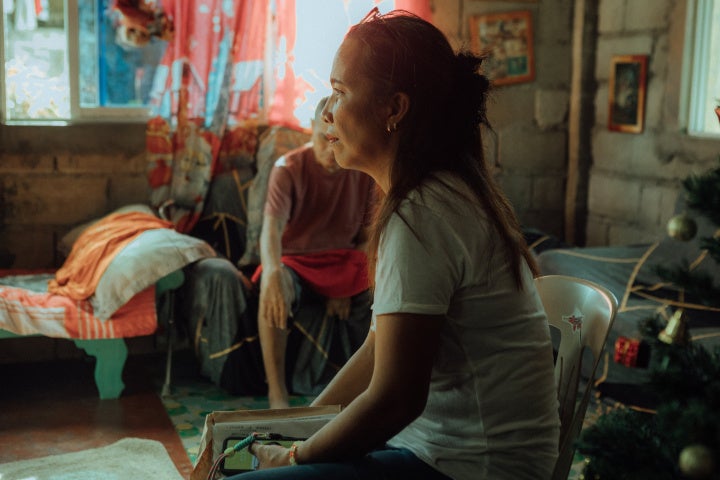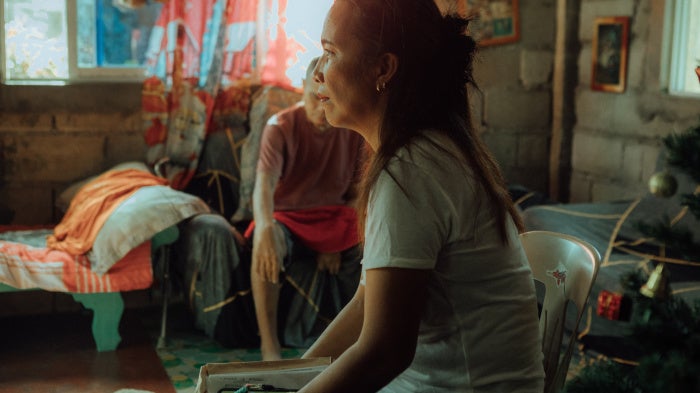After the Storm
A new web feature looks at climate change, planned relocation, and people with disabilities in Siargao, Philippines.


A new web feature looks at climate change, planned relocation, and people with disabilities in Siargao, Philippines.


The 80-page report, “‘If It’s Not Racism, What Is It?’: Discrimination and Other Abuses Against Papuans in Indonesia,” finds that the protests, built around the Papuan Lives Matter social media campaign, were centered on human rights violations against Papuans, including denial of the rights to health and education, and peaceful calls for sovereignty for West Papua, where most Indigenous Papuans live. The report profiles cases of Papuan activists convicted for their role in the protests and the baseless charges brought against them.

The 90-page report, “‘I Can’t Go Home, Stay Here, or Leave’: Pushbacks and Pullbacks of Syrian Refugees from Cyprus and Lebanon,” documents why Syrian refugees in Lebanon are desperate to leave and try to reach Europe; and how the Lebanese army has intercepted, pulled them back, and summarily expelled them to Syria. In tandem, the Cypriot Coast Guard and other Cypriot security forces have sent Syrians whose boats reached Cyprus back to Lebanon, without regard to their refugee status or risk of being expelled to Syria. Many of those sent back to Lebanon by Cyprus were immediately expelled to Syria by the Lebanese army.

The 29-page report, “Politically Targeted, Economically Isolated: How Kazakhstan’s Financing Terrorism List Compounds Human Rights Harms,” documents that people on Kazakhstan’s Financing Terrorism List face financial restrictions that cause them significant hardship. The restrictions lead to violations of rights guaranteed by the International Covenant on Economic, Social, and Cultural Rights (ICESCR) to which Kazakhstan is a state party, including the rights to an adequate standard of living and access to work and social security benefits. This is particularly egregious when the prosecutions are for alleged nonviolent “extremist” or “terrorist” crimes, that should not be considered crimes in the first place.

The 78-page report, “Reproductive Rights in the US Wildfire Crisis: Insights from Health Workers in Oregon State,” finds that the US government needs to do more to address the growing threat wildfires pose to maternal and newborn health, particularly in marginalized communities. The organizations documented the impacts of recent wildfires on maternal and newborn health in the state of Oregon, drawing on the experiences of community health workers and maternal health providers, among others.

The 337-page report, “‘You Have to Move!’ The Cruel and Ineffective Criminalization of Unhoused People in Los Angeles,” documents the experiences of people living on the streets and in vehicles, temporary shelters, and parks in Los Angeles, as they struggle to survive while facing criminalization and governmental failures to prioritize eviction prevention or access to permanent housing. Law enforcement and sanitation “sweeps” force unhoused people out of public view, often wasting resources on temporary shelter and punishments that do not address the underlying needs. Tens of thousands of people are living in the streets of Los Angeles; death rates among the unhoused have skyrocketed.

The 44-page report, “Navigating Obstacles: Abortion Access in the State of Mexico,” found that the state’s abortion law does not guarantee access to this essential service, even for legally eligible cases. Barriers to access include healthcare providers denying or delaying services, withholding necessary information, questioning the veracity of sexual violence survivors' statements, subjecting women to mistreatment, and imposing arbitrary requirements for access that contradict existing law and regulations.

The 205-page report, “Russia’s Legislative Minefield: Tripwires for Civil Society since 2020,” focuses on the wave of repressive legislation and policies that the Russian government of President Vladimir Putin has adopted since 2020 and how the Kremlin has used them to suppress internal dissent and incapacitate civil society. These laws severely restrict the rights to freedom of expression, association, and peaceful assembly, and impose state-enforced historical, social, and political narratives in public life.

The 77-page report, “‘Worse Than Hell’: Death and Torture at Chad’s Koro Toro Prison,” documents in detail the detention of 72 people, several of whom were tortured or ill-treated at Koro Toro following the October 20 protests in the Chadian capital, N’Djamena, and in several other towns, to protest the two years extension of the transitional government. Security forces fired live ammunition at protesters. Hundreds were then taken to Koro Toro, a high security prison about 600 kilometers away. The transition ended in May 2024 with the election of Gen. Mahamat Idriss Déby.

The 86-page report, “It’s Like Killing Culture,” documents the Tanzanian government program that began in 2022 to relocate over 82,000 people from the NCA to Msomera village, about 600 kilometers away, to use their land for conservation and tourism purposes. Since 2021, the authorities have significantly reduced the availability and accessibility of essential public services, including schools and health centers. This downsizing of infrastructure and services, coupled with limiting access to cultural sites and grazing areas and a ban on growing crops, has made life increasingly difficult for residents, forcing many to relocate.

The 88-page report, ““Khartoum is Not Safe for Women”: Sexual Violence against Women and Girls in Sudan’s Capital,” documents widespread sexual violence, as well as forced and child marriage during the conflict, in Khartoum and its sister cities. Service providers treating and supporting victims also heard reports from women and girls of being held by the RSF in conditions that could amount to sexual slavery. The research also highlights the devastating health and mental health consequences for survivors and the destructive impact of warring parties’ attacks on health care and the Sudanese Armed Forces’ (SAF) willful blocking of aid.

The 60-page report, “‘Like Patchwork’: Ecuador’s Slow Progress Tackling and Preventing School-Related Sexual Violence,” documents significant gaps in the government’s response to prevent and tackle abuses in Ecuador’s education system. Many schools still fail to report abuses or fully implement required protocols. Judicial institutions do not adequately investigate or prosecute sexual offenses against children, affecting survivors’ ability to find justice.

The 236-page report, “‘I Can’t Erase All the Blood from My Mind’: Palestinian Armed Groups’ October 7 Assault on Israel,” documents several dozen cases of serious violations of international humanitarian law by Palestinian armed groups at nearly all the civilian attack sites on October 7. These include the war crimes and crimes against humanity of murder, hostage-taking, and other grave offenses. Human Rights Watch also examined the role of various armed groups and their coordination before and during the attacks. Previous Human Rights Watch reports have addressed numerous serious violations by Israeli forces in Gaza since October 7.

The 107-page report, “‘Your Child Does Not Exist Here’: Human Rights Abuses Against Children Under El Salvador’s ‘State of Emergency,’” documents arbitrary detention, torture, and other forms of ill-treatment against children under President Nayib Bukele’s “war on gangs.” Detained children have often faced overcrowding, lack of adequate food and health care, and have been denied access to their lawyers and family members. In some cases, children have been held, in the first days after arrest, alongside adults. Many have been convicted on overly broad charges and in unfair trials that deny due process.

The 91-page report, “Disrupt and Vilify,” shows that the failure to reform disproportionately harsh federal immigration law has resulted in enormous numbers of deportations, splitting families apart, disrupting communities, and destabilizing people well-established in the US. For example, federal immigration law that treats some types of marijuana use as a deportable offense is at odds with many states’ recreational marijuana laws, penalizing immigrants and non-citizens for activities that are legal for citizens at the state level. The groups found that 500,000 people whose most serious offense was for drugs were deported between 2002 and 2020.

The 66-page report, “‘If the Soldier Dies, It’s On You’: Attacks on Medical Care in Ethiopia’s Amhara Conflict,” documents how Ethiopian federal forces and a government-affiliated militia have attacked medical workers, healthcare facilities, and transports in at least 13 towns since the outbreak of fighting between Ethiopian federal forces and Amhara militia known as Fano in August 2023. Ethiopia’s international partners should call for accountability and an end to attacks on healthcare and should resume increased scrutiny of the rights situation in the country.
